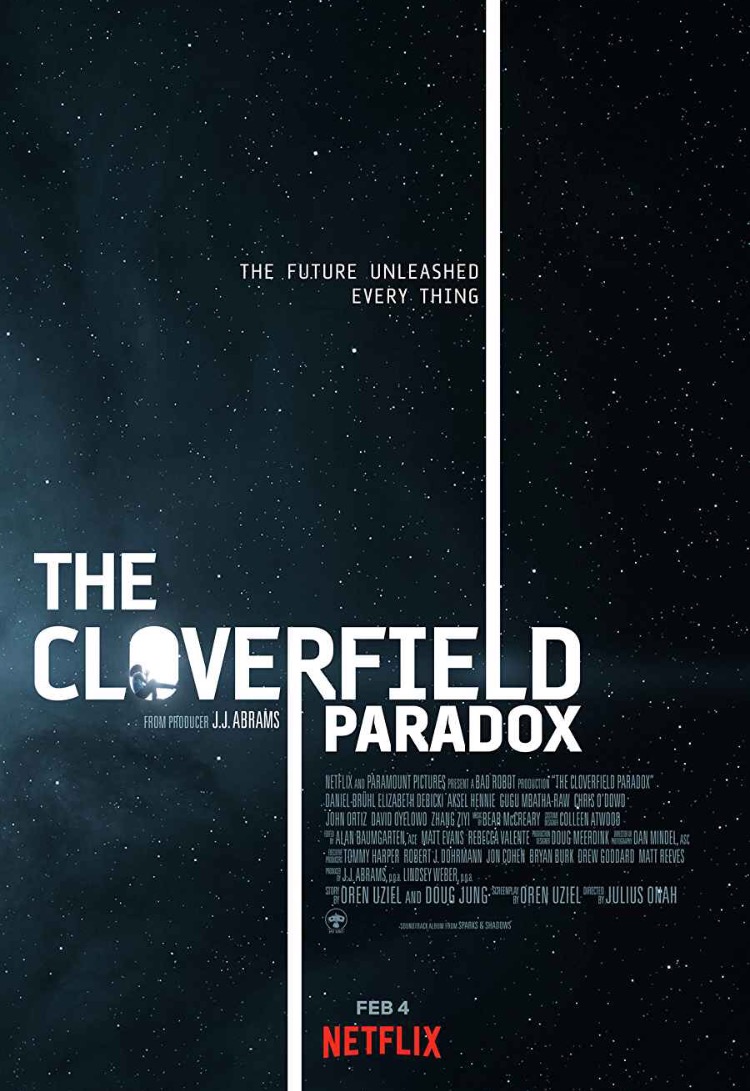An Arguing With Myself Review: The Cloverfield Paradox

A crew of scientists aboard the Cloverfield Space Station test the Shepard particle accelerator to solve an energy crisis, while the earth below is on the brink of war. The crew consists of Hamilton (Gigi Mbatha-Raw), a British scientist working on the Shepard; Schmidt (Daniel Brühl), a German scientist working on the Shepard; Tam (Ziyi Zhang), a Chinese scientist also working on the Shepard; Volkov (Aksel Hennie), a Russian scientist in charge of life support and ensuring that the ship’s electronics are properly functioning; Monk (John Ortiz), a Brazilian and the crew doctor; Mundy (Chris O’Dowd), an Irish technician; and Kiel (David Oyelowo), the American crew commander. After multiple attempts at keeping the accelerator operational, it appears that the particle accelerator works. However, it quickly overloads, creating an energy output far above normal levels. Upon fixing this, the crew discovers to their horror that they are no longer orbiting the Earth. They originally assume that they may have destroyed the planet accidentally when testing the Shepard, but later come to the conclusion that they have been warped to an entirely different part of the galaxy.
If you look at The Cloverfield Paradox as a standalone film, not attached as a sequel to Cloverfield and 10 Cloverfield Lane, you still won’t think it’s great but you’ll see it for what it is; a run of the mill sci-fi film. Unfortunately, it was advertised as a sequel (the original script was titled, God Particle). The same was done with 10 Cloverfield Lane (originally titled, The Cellar) but we’re more forgiving, considering it was the better film of the two. Even the added scenes in Paradox seemed shoehorned in. Donal Logue, who makes a brief appearance, states exactly what will happen if the Shepard should become operational. That’s just lazy writing. If JJ Abrams wants to expand the Cloverfield property, he should take pen-to-paper, or dictate what he wants, because this cut and paste method of world building will not sustain your audience. As I ponder more on the connective tissue this “trilogy” has, it seems as though we’re reaching. We’re trying as hard as we can to accept these films share a common thread. I fail to see it.
If I were to write my review and submit it shortly after watching this film, I would’ve given it a more favorable standing. The fact I mulled it over for most of the week, brought me to this conclusion. It was middle of the road for me. It wasn’t a game-changer and it wasn’t the worst I’ve seen. I saw it and now I can move on. Just because it’s got “Cloverfield” in the title, doesn’t mean you’re seeing a Cloverfield film. In the end, do we really need this to be an expanded universe? Let’s leave that to the company that’s been doing it successfully in film for 10 years, Marvel.



©2018 Pint O’ Comics | About Us | Contact Us | Site created by One Flight Up Design